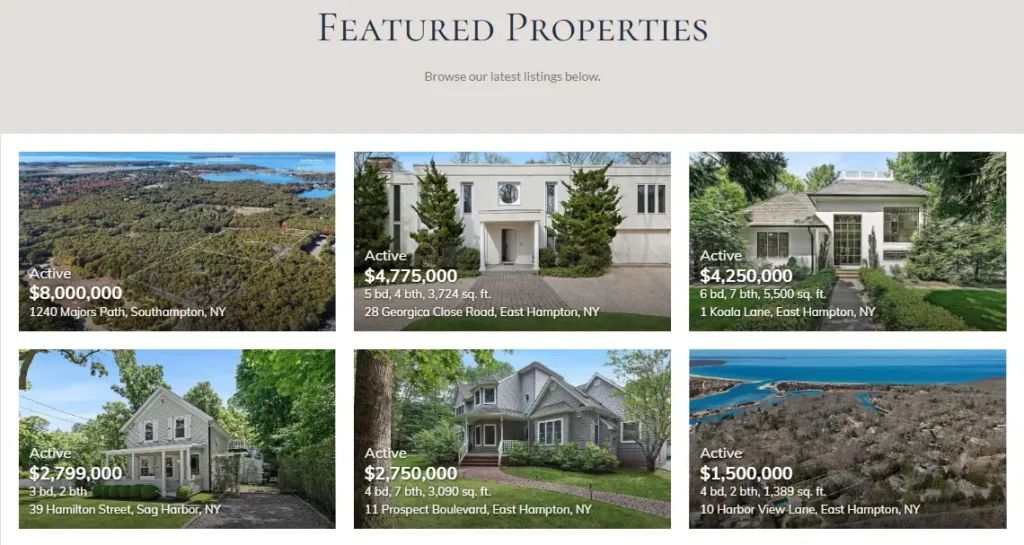When buying property in the Hamptons, zoning laws are an essential consideration that can significantly impact your purchase decision and future plans. These regulations dictate how land can be used, what types of structures can be built, and how properties can be developed. Understanding zoning laws in the Hamptons ensures you make informed choices and avoid legal or financial surprises. In this guide, we’ll break down what you need to know about Hamptons zoning laws as a homebuyer.
What Are Zoning Laws?
Zoning laws are local regulations
that control land use and property development. These laws are designed to maintain the character of neighborhoods, protect the environment, and promote public safety. In the Hamptons, zoning laws are strictly enforced and can vary significantly between towns, villages, and neighborhoods.
Some key elements of zoning laws include:
Permitted Uses: Residential, commercial, agricultural, or mixed-use designations.
Building Restrictions: Height limits, setbacks, and property size requirements.
Environmental Protections: Restrictions to preserve wetlands, beaches, and other natural features.
Why Zoning Laws Matter to Homebuyers
1. Future Development Plans: Zoning laws determine whether you can expand or renovate your property, build additional structures, or make other changes
2. Neighborhood Character: Zoning laws preserve the charm of Hamptons neighborhoods, ensuring that new developments align with existing aesthetics.
3. Investment Protection: Adhering to zoning laws helps maintain property values and avoids potential fines or legal issues.
Zoning in Hamptons Towns and Villages
1. Southampton
Southampton zoning laws prioritize environmental preservation and maintaining the area’s upscale character. Key
considerations include:
Wetlands Protection: Properties near wetlands are subject to strict development restrictions to protect fragile ecosystems.
Historic Districts: Renovations and new construction in designated historic districts require additional approvals.
2. East Hampton
East Hampton emphasizes preserving open spaces and coastal areas. Important regulations include:
Lot Size Requirements: Many areas require a minimum lot size to limit overdevelopment.
Scenic Easements: These protect viewsheds, ensuring properties maintain the natural beauty of the area.
3. Sag Harbor
Sag Harbor combines historic charm with modern living. Zoning laws here often include:
Historic Preservation Rules: Homes in the historic district may face restrictions on exterior changes.
Mixed-Use Zoning: Some areas allow for a blend of residential and commercial use, ideal for live/work setups.
4. Montauk
Montauk’s zoning focuses on protecting its rugged coastal beauty. Considerations include:
Coastal Erosion Setbacks: Properties near the shoreline must adhere to strict setback requirements.
Height Limits: Building heights are capped to prevent obstruction of ocean views.
Key Zoning Considerations for Homebuyers
1. Lot Coverage and Setbacks: These rules govern how much of your property can be developed and the distance required between structures and property lines.
2. Accessory Structures: Adding features like guesthouses, pools, or garages may require permits and adherence to zoning regulations.
3. Commercial Use: If you’re considering operating a business from your property, check whether zoning permits commercial activity.
4. Subdivision Rules: If you plan to divide a large parcel of land into smaller lots, ensure the zoning laws allow it.
Environmental Protections and Zoning in the Hamptons
The Hamptons is known for its pristine beaches, wetlands, and open spaces, which zoning laws aim to protect.
Wetlands Protection: Development near wetlands often requires additional permits and environmental impact assessments.
Coastal Overlay Districts: These districts impose restrictions on properties near the shoreline to address erosion and flooding concerns.
Tree Preservation Ordinances: Cutting down trees may require approval, especially on larger lots or in environmentally sensitive areas.
Steps to Navigate Zoning Laws as a Homebuyer
1. Consult with Local Authorities: Visit the local building department to review the zoning designation and restrictions for the property you’re interested in.
2. Hire a Real Estate Attorney: An experienced attorney can review zoning regulations and identify potential challenges or opportunities.
3. Work with a Local Realtor: A Hamptons-based realtor can guide you through zoning complexities and recommend properties that align with your needs.
4. Obtain Necessary Permits: If you plan to renovate or build, ensure you secure the proper permits to avoid legal issues.
Frequently Asked Questions About Hamptons Zoning Laws
Q: Can I build a guesthouse or pool on my property?
A: It depends on the property’s zoning designation, lot size, and setback requirements. Check with the local building
department before proceeding.
Q: What are the penalties for violating zoning laws?
A: Penalties can include fines, stop-work orders, or the requirement to remove non-compliant structures.
Q: Are there zoning exemptions or variances?
A: Yes, homeowners can apply for a variance if their plans don’t comply with zoning laws, but approval is not guaranteed.
Why Zoning Knowledge Is Crucial for Homebuyers
Understanding zoning laws is essential for ensuring that your property purchase aligns with your lifestyle and investment
goals. From building a dream home to maintaining the charm of your neighborhood, zoning regulations play a pivotal role
in preserving the unique appeal of the Hamptons.
Contact Niko Cejic –Douglas Elliman
Phone: 631.329.9400
Let me help you navigate the Hamptons real estate market with expert advice on zoning laws, property taxes, and more. Together, we’ll find the perfect home that meets your needs and aspirations






